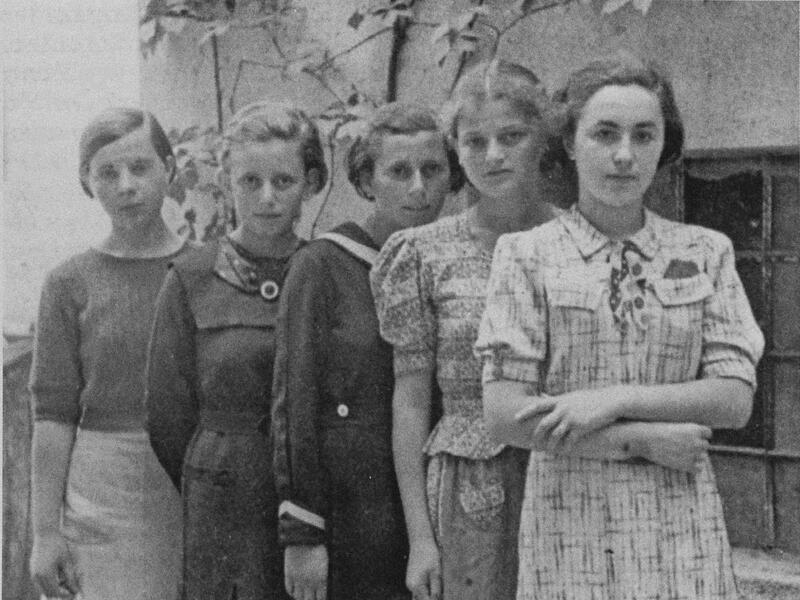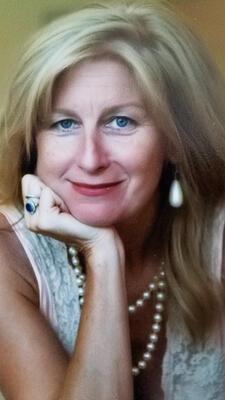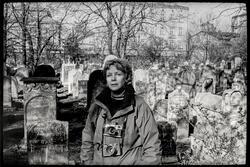Q & A with Heather Dune Macadam, Director of "999: The Forgotten Girls"
JWA talks with Heather Dune Macadam, director of the new documentary 999: The Forgotten Girls, which tells the story of the 999 young women who made up the first official transport of Jews to Auschwitz in 1942.
This interview has been edited and condensed for clarity.
JWA: How did you learn about the story of the 999 girls who made up the first official transport of Jews to Auschwitz?
Heather Dune Macadam: My first book was [about] one of these women [from the transport]. That was Rena's Promise: A story of Sisters in Auschwitz. And then Rena passed away in 2007, and I wanted to make a memorial trip in honor of her on the 70th anniversary of the first transport. So it was 2012 and I went to Poprad [Slovakia, where the young women of the first transport were from]. When I got to Poprad, there were ceremonies going on for the anniversary and there was a plaque in the train station memorializing these girls. It was a really big deal. The prime minister was there and Edith Grosman [one of the women in the first transport] was there.
I contacted her and I went and interviewed her [at her home] in Toronto. She was willing to talk on camera. She was really sharp. She was amazing. So it just expanded from that, and Edith knew so many of the girls on the first transport, because she went to school with so many—they'd grown up together. I realized that the story was really a multiple narrative. It wasn't just a memoir that I wanted to do. I wanted to really encapsulate the transport. So I pretty much wove a tapestry together of these separate stories [in the book 999, which came out in 2019]. Of course the film has fewer threads, because you can't put everybody in a film.
JWA: Can you explain why young women specifically were targeted for the first official transport?
HDM: We have to remember that this is [Heinrich] Himmler. And it's genocide. And if you want to destroy a race of people, you go for the young women, right? That's the next generation of mothers.
JWA: The film is called 999: The Forgotten Girls. Why was this story forgotten?
HDM: Personally, I think it's because they were teenage girls. And we're also talking about a generation of women who did not easily share their stories. I remember I was interviewing one survivor, and her husband kept coming into the room going, "I was in the Holocaust too. Don't you want to interview me?"
I think also— my gut is that there's some shame attached to it, the shame that these young women were the first targets.
JWA: Most Holocaust survivors—including most of the women you interviewed for the book and film—have died. Going forward, how do we keep the memory and lessons of the Holocaust alive?
HDM: My feeling is, the most important way to handle education is not to beat kids over [the head] with the horror, but to give them a personal connection and to give them hope. I screened [the film] with teenagers, and I was able to say to them at the end, you know, these girls are all teenagers, and they're awesome, and you're awesome. It is so much about helping each other, not being self-centered and selfish, reaching out when you can. So I think they're great role models for young women.
To me, it's really about squeezing out the good in the story, so that young people will be interested. I find what interests me most in stories of the Holocaust is not the horror—it's the resilient spirit. And that's what I want to focus on.
JWA: I watched the film soon after the news broke that three Israeli hostages, all young women, would soon be released from captivity in Gaza. Watching your film and hearing the stories of these young women who'd endured the horrors of Auschwitz and survived was really poignant in that moment.
HDM: It was really amazing [for me], because we premiered the film in Israel Sunday night [when the first hostages had just returned]. And the first thing that the moderator said was, "Welcome home."
Somebody came up to me [after the film] and said,"You know, their mothers got to hug them and receive them home. And so many of the girls [among] the 999 didn't have mothers to hug them." We were all in tears.
999: The Forgotten Girls will be screened in Washington, DC on Monday, January 27, to mark International Holocaust Remembrance Day. For more information and to find out about upcoming screenings, check out 999themovie.com









Looking forward to a screening
Very much enjoying reading all this material. I am learning a lot